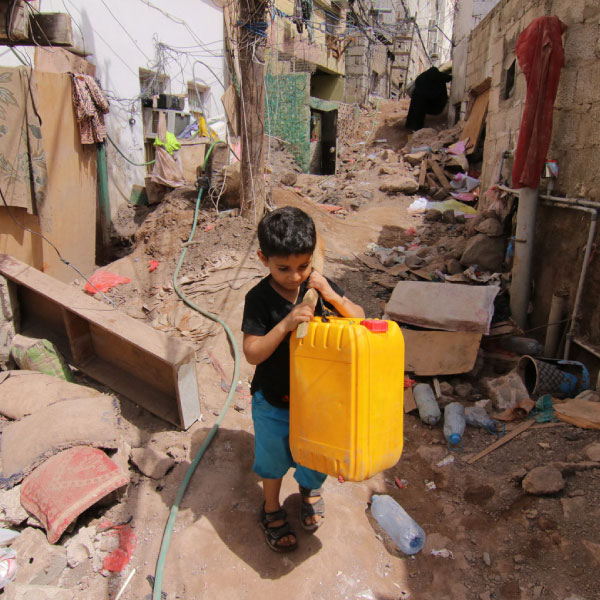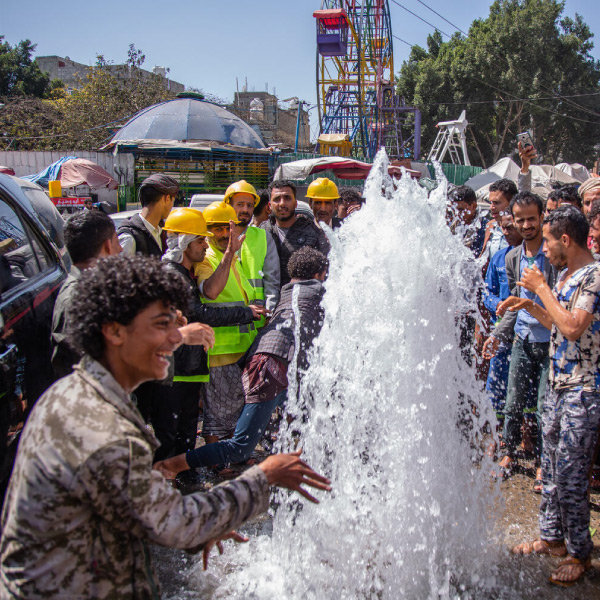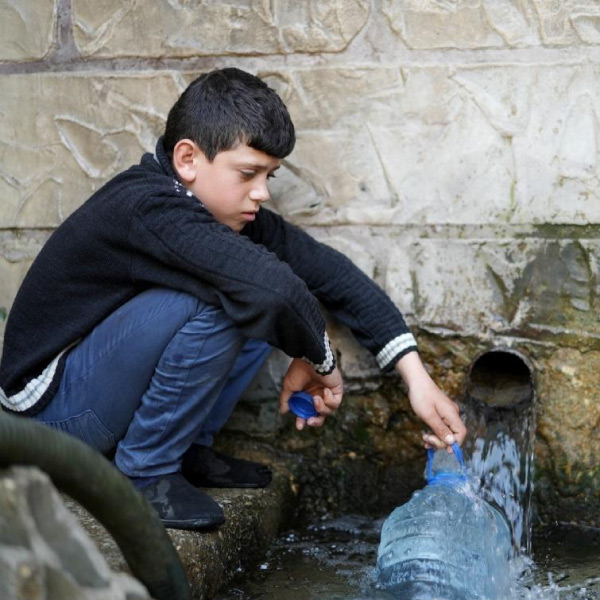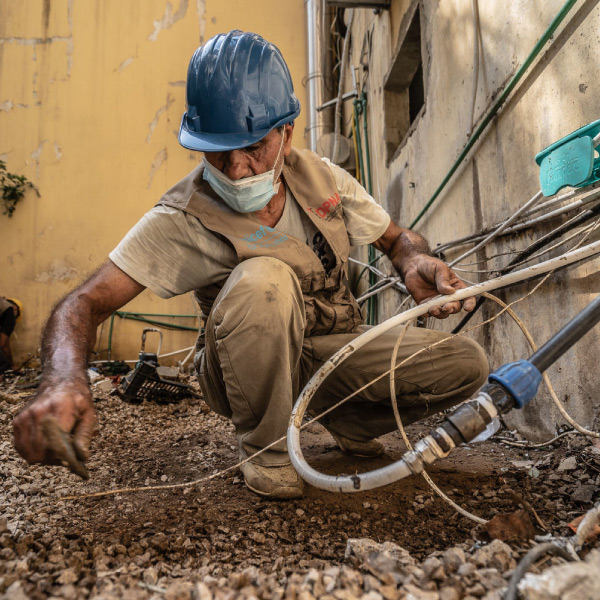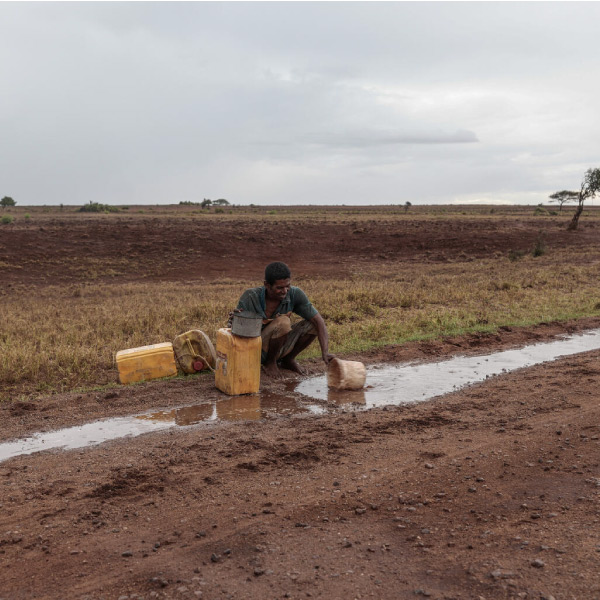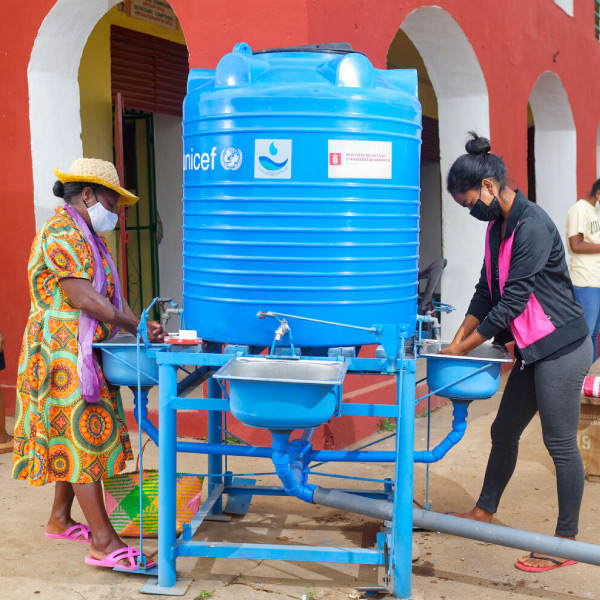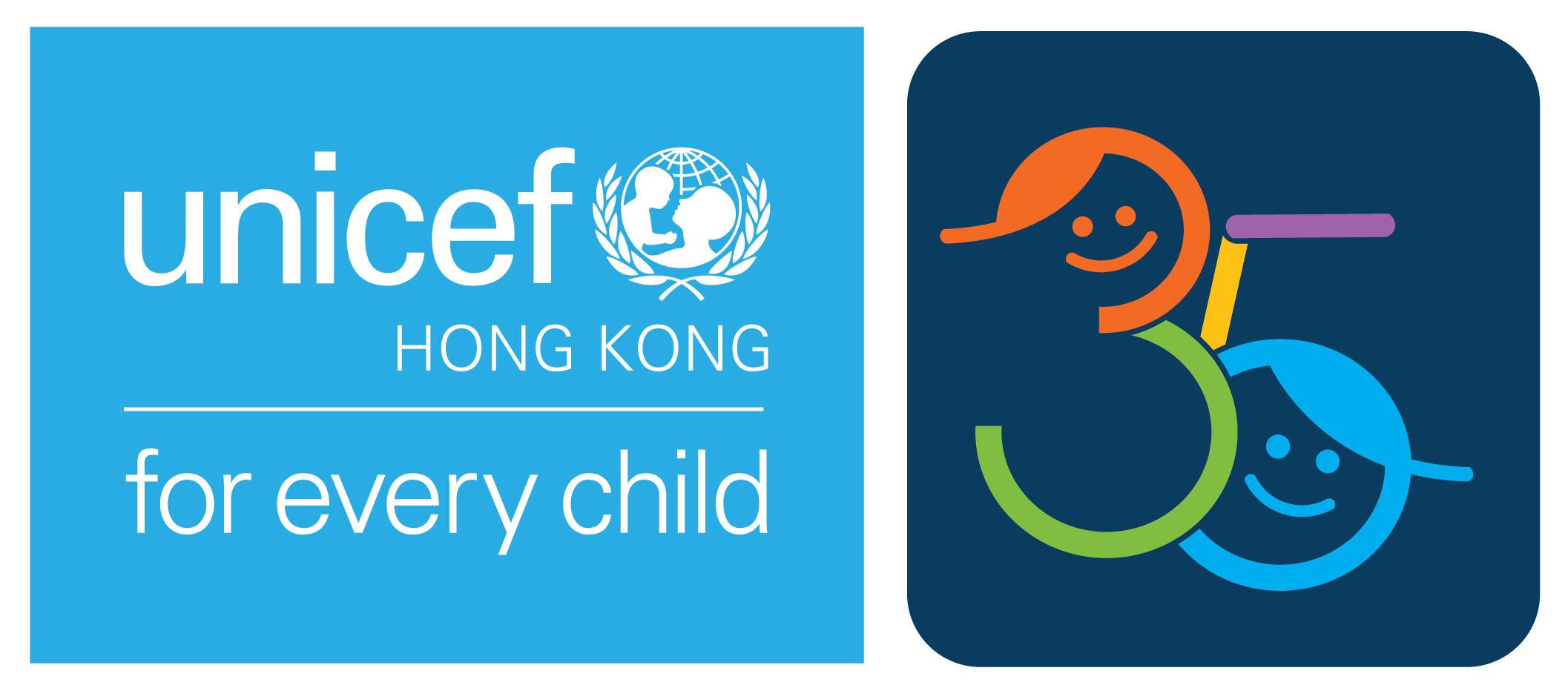
End Their Search
CLEAN WATER, PROPER SANITATION AND GOOD HYGIENE
for every child.
Around the world, 2.2 billion people still lack access to safe drinking water. In addition, more than half of the global population do not have access to safe sanitation.
In many places, violent conflicts, natural disasters, and the chain effects of climate change are causing the collapse of public services including water and sanitation systems, fueling the spread of major diseases. As a result, millions of children miss out on education because they have to spend hours every day searching and collecting water.
Water, sanitation and hygiene (WASH) is a basic human right. UNICEF is determined to provide it to all children in need.
Current Situation
Water Under Fire – Yemen
Entering its sixth year of protracted conflict, Yemen saw 122 airstrikes on its water infrastructure between March 2015 and February 2021. To this day, around 15.4 million people urgently need safe water and sanitation as the cholera epidemic continues to make thousands of children ill every week.
How to solve: UNICEF supplied and installed five water pumps for five wells, and rehabilitated 12 wells in the country’s most under-resourced areas. Now, water is being distributed every week, bringing life back to the city, its residents and farmlands.
Funds Down the Drain – Lebanon
More than four million people, including one million refugees, are at immediate risk of losing access to safe water in Lebanon. With the rapidly escalating economic crisis, shortages in funding, fuel and supplies, UNICEF estimates that most water pumping in the country will gradually cease very soon. Unless urgent action is taken, essential public facilities such as hospitals and schools will be unable to function, forcing over four million people to resort to unsafe and costly sources of water, putting children’s health and hygiene at risk.
Rebuild the infrastructure: UNICEF works closely with public water supply providers to reach the most vulnerable children and women in Lebanon. Using the existing water infrastructure during the COVID-19 pandemic, UNICEF supported the delivery of safe water to communities across the country.
UNICEF and partners also supported families affected by the Beirut port explosion by repairing water and sanitation facilities.
Natural Disasters & Chain Effect of Climate Change – Madagascar
In southern Madagascar, protracted droughts are generating a humanitarian crisis, including high food insecurity and increased cases of malnutrition and water-borne diseases. Since the Mananbovo river dried out, the community had to use the remaining stagnant water for livestock drinking, clothes washing, showering and household cleaning. Despite the health risks, they must continue to use the dark green tinted water until a better solution arrives.
WASH intervention: From January to April 2021, UNICEF’s water and sanitation interventions reached 121,000 people in the areas of Madagascar most affected by the ongoing drought. Our target goal for this year is to provide 500,000 people in Madagascar the access to sufficient quantity of safe water for drinking, cooking and personal hygiene.
In addition, UNICEF and partners are working towards providing 45 million people with access to safe water. In response to the pandemic, UNICEF initiated multiple hygiene programs to prevent human-to-human transmission and ensure the continuity of essential WASH products and services for countries in need.
The world needs to get smarter with water and integrate it with hygiene routines.
Everyone has a role to play, and we cannot afford to wait.
Copyright ©2022 Hong Kong Committee for UNICEF | Tax-exempt Charity File No.: 91/2433
